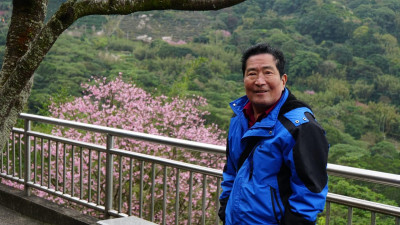《TAIPEI TIMES》 Referendum advocacy fine on 24th

A worker stacks newly printed referendum ballots yesterday in Pingtung County. Photo: Hou Cheng-hsu, Taipei Times
PRICEY POLL: The local elections and referendums are to cost about NT$500 million more than the past two polls because of increases in poll workers and wages
By Sean Lin / Staff reporter
People on election day may advocate their preferences for the referendums, but may not campaign for candidates, Central Election Commission Chairman Chen In-chin (陳英鈐) said yesterday.
The commission, the Administrative Enforcement Agency and the Ministry of the Interior concluded that people may advocate their preferences for the referendums on Nov. 24 as long as they do so outside restricted zones, as the Referendum Act (公民投票法) does not prohibit them from doing so, Chen said.
He made the announcement at a weekly news conference at the Executive Yuan in Taipei in response to media queries about seemingly conflicting rules in the act and the Civil Servants Election and Recall Act (公職人員選舉罷免法).
However, campaigning for referendums should not contravene the Civil Servants Election and Recall Act, which bars all campaign activities on election day, Chen said.
This means that no campaign flags, banners, uniforms or slogans are allowed on election day at events relating to the referendums, and no candidates are allowed to attend such events, he said.
All campaigning activities for candidates should end by 10pm on Nov. 23, he said, adding that police are to take legal action against anyone who contravenes the rule.
A referendum requires at least 4.94 million “yes” votes — or one-quarter of the 19.76 million eligible voters — to pass, Chen said.
On two mutually exclusive referendums: Referendum No. 10, which asks people whether they agree that the Civil Code should define marriage as a union between a man and a woman, and Referendum No. 14, which asks whether voters agree that the code should include language to protect same-sex unions, Chen said that one of the referendums could pass, they could both pass or they could both fail.
Meanwhile, commission statistics showed that this year’s polls have been given an unprecedentedly large budget compared with past elections and referendums.
The nine-in-one elections would cost local governments NT$3.19 billion (US$103.9 million), while the referendums, financed by the Executive Yuan’s second reserve fund, would cost NT$1.5 billion, the data showed.
About NT$4.7 billion has been spent on the polls overall, about NT$500 million more than the 2012 local elections and the 2016 presidential and legislative elections, Department of Electoral Affairs Director-General Hsieh Mei-ling (謝美玲) said, adding that the difference was mainly caused by an increase in the number of poll workers and higher wages
The commission has recruited 295,904 poll workers, about 90,000 more than for the past two elections, Hsieh said.
Poll worker wages would also increase, as they would have to work longer hours to count the referendum ballots, she said.
新聞來源:TAIPEI TIMES


















